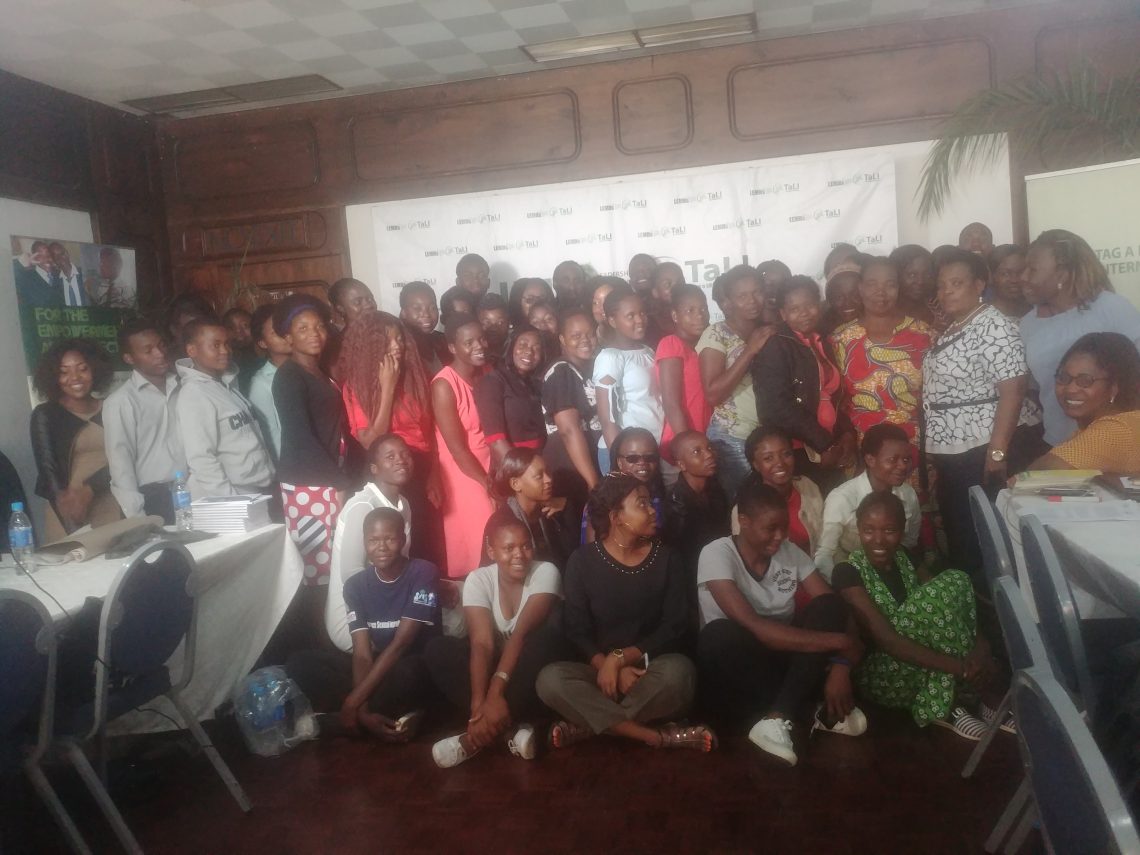By Byron Mutingwende
The Constitution of Zimbabwe has provisions to make education a compulsory right for every child and Parliamentarians have pledged support to the Tag A Life (TaLI)’s Every Child In School (ECIS) Campaign.
The campaign calls on the government of Zimbabwe to urgently restore the legacy of education by allowing the hundreds of thousands of marginalised children who are out of primary school, owing to a number of reasons chief among them inability by parents or guardians to pay the required school fees when they are looking for places to enrol their children.
Speaking at the TaLI Annual Girls Conference running in Harare from 2 to 3 October 2018 running under the theme “Girls at the Table”, Trevor Saruwaka, the Member of National Assembly for Mutasa Central said the right to education is inalienable and must be enjoyed by all citizens.
“The Zimbabwe Constitution, in section 75(a), stipulates that the State must take all practical measures to promote a basic-state funded and compulsory education for children. The State is also expected “to take reasonable legislation and other measures, within the limits of the resources available to it, to achieve the progressive realisation of the right set out” (Constitution of Zimbabwe Amendment (No. 20) Act, 2013.
“This right to education is inalienable, meaning our demand for giving compulsory education to every child is imperative. As we approach the time for the National Budget, stakeholders, including Members of Parliament like us, should urge the government to prioritise Budget allocation for education,” Saruwaka said.
Education, together with health, is among the critical social services. He said education remains a fundamental and un-negotiated right for all these children who are out of school to be given a chance at education, just like those who are within the schools are protected by existing policies.
“The state has left this responsibility to the evidently struggling parents and guardians who constitute the more than 90% formal unemployment. In return children, are not enrolled in school.
“We are concerned by the socio-economic challenges such as the high rate of child marriages, child labour, trans-generational poverty and the current numbers of failure of enrolment of many living below the poverty line those failing to stay in school.
“According to research every year, more than a million school age children are at the risk of either dropping out of school or not enrolling at all. 6.6% of primary and 20.6% of secondary school children were not in school in 2014 (Child Labour Survey 2014), and 68% of these children failed to enrol in school due to financial reasons leading to 23.3% failing to complete primary education whilst 58% were just demotivated to enrol, probably due to the same reasons (MoPSE Education Sector Strategic Plan 2016-2020,” said Nyaradzo Mashayamombe, the TaLI Director.
Concillia Chinanzvavana, the Member of Parliament for Mashonaland West , who is on the education, environment and tourism portfolio committees, said government should allocate at least 20% to education in national budgets.
“It’s regrettable that children are always sent back home for failure to pay school fees. As Parliamentarians, we will make a loud cry for educational funding from the government coffers. There is need to put in place measures to ensure the bulk of funding to the education sector is not chewed by labour costs. The Every Child in School campaign should start from the home,” Chinanzvavana said.
Goodluck Kwaramba, the Chairman of the Parliamentary Portfolio Committee on Education said government should work towards creating a specific educational fund from its own coffers.
“The functionality of education should not entirely depend on donors. For instance, for every dollar put towards the Basic Education Assistance Module (BEAM), donors put in the same amount into the programme. Due to failure by parents to pay school fees, there is a very high rate of child marriages in areas like Hurungwe and Mbire according to our findings as the Parliamentary Portfolio Committee,” Kwaramba said.
Sithabile Mathonsi from Bulawayo urged stakeholders to get into grassroots to understand the myriad of challenges faced by children out of school. She said some might be forced out of school due to their poor backgrounds or due to the prevalence of many child-headed families.






